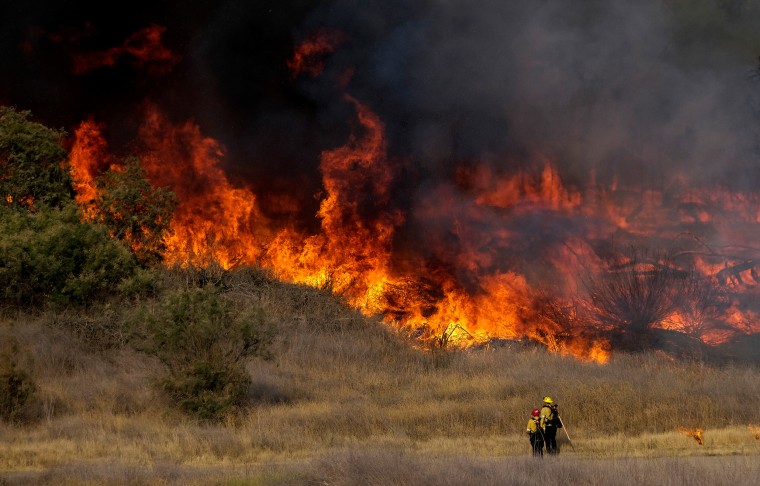In the last few weeks, progressives in both chambers of Congress have begun to get nervous about whether a potential bipartisan deal would slash planned investments in mitigating climate change. There have been talks of these members withholding their votes from any deal that doesn’t deliver on climate action, especially with memories of the failure to do so back in 2009.
Meanwhile, Agence France-Presse recently obtained a draft of a new report from the United Nations’ Intergovernmental Panel on Climate Change, or IPCC, and, as you might guess, the news was not good.
"Life on Earth can recover from a drastic climate shift by evolving into new species and creating new ecosystems,” the draft report reads, according to AFP. “Humans cannot."
That's a pair of sentences that are both true and terrifying. The IPCC isn’t telling us something we don’t already know, though they’re doing so with unprecedented clarity into how devastating the effects will be. Anthropogenic climate change is real and happening all around us, steadily creeping toward a tipping point where society as we know it can no longer sustain itself.
It’s easy to think of that point in time as “the end of the world” — I definitely have. But as author John Green wrote in his recent book “The Anthropocene Reviewed”: “[O]ur departure from Earth will very probably not be the end of the world, nor will it be the end of life in the world. Humans are a threat to our own species and many others, but the planet will survive us.” The IPCC seems to agree with Green’s framing.
Which brings me back to Washington, where the debate about infrastructure spending, which I most recently wrote about last week, is still ongoing.
"How do you go forward right now in this moment in history and not address the terrible climate crisis that we face and transform our energy system?" Senate Budget Committee Chair Bernie Sanders, I-Vt., asked on CBS' "Meet the Press" this week. But there’s no guarantee that those full provisions make it into any bipartisan package or any follow-up bill that Democrats may or may not have planned.
Sometimes when you write about politics and the machinations of Washington day in and day out, it can be easy to lose track of what really matters. The back and forth of this debate has all the elements that political reporters and writers love to dwell on and unpack; the ups and downs of negotiations, the giant numbers that make up the top-lines of the proposals and counterproposals, the high stakes drama of the race against time before the next election and who wins and who loses. We talk about strategy and winning the midterms and the filibuster as if that’s the point in and of itself.
It's like watching a pianist’s fingers flow across a keyboard, marveling at how fast they move and how effortless it all seems. It’s also possible though to be so entranced that you forget everything except the fingers’ movements, completely drowning out the music filling the air and the way it’s affecting the audience around you.
But things like the AFP’s reporting make you stop and think — in this case about how wild it is that we’re even having this debate at all. The western half of the United States spends months of the year burning now — this year is poised to be worse than what’s come before thanks to a massive and ongoing drought. Food scarcity is already on the rise around the globe thanks to climate shifts; the rising acidification of the ocean is threatening life throughout the seas.
Politics can feel like an abstract amassing of power when you stare into the abyss too long without considering the effects of the decisions being made. The only debate that we should be having around climate change right now is how much money to throw at the problem before it’s too late. The fact that we’re instead talking about the politics of the matter, as if people will be in a position 100 years from now to remember the billions of dollars saved instead of the abject failure to act, is truly absurd.

